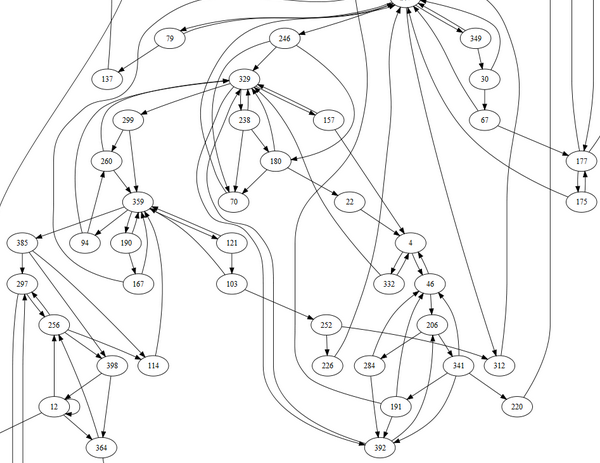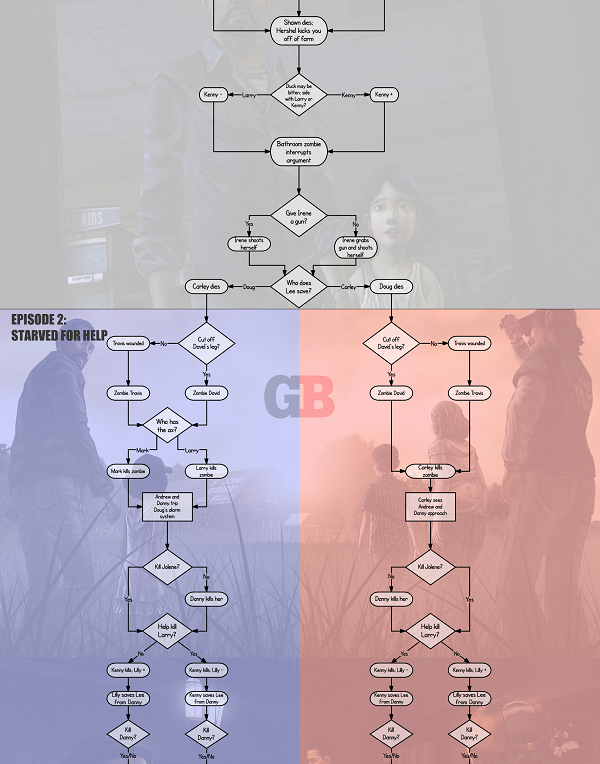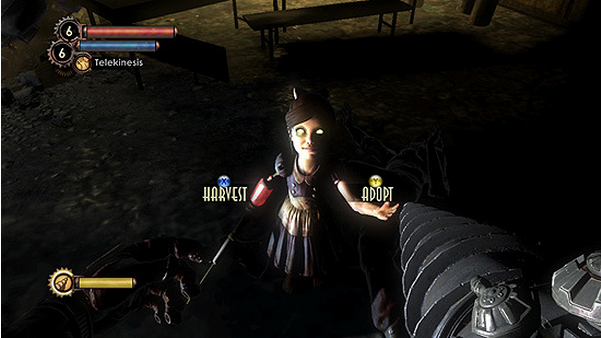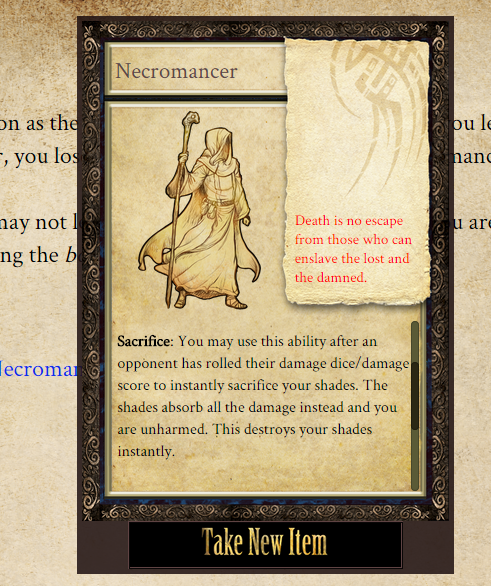
Friday Night Rambling: Are gamebooks fun?
Let me start with a confession:
I’m American.
For the first twenty-odd years of my life, the only gamebooks I played were Choose Your Own Adventures. No dice. No items. No keywords. I had no idea that across the pond things like Fighting Fantasy and Lone Wolf existed.
When I was first starting work on DestinyQuest Infinite, the gamebook that would soon grow to consume my entire life, I spent a lot of time researching gamebooks, and as I did so, a question hung silently in the back of my mind:
Are gamebooks obsolete?
Back when the books were going out of print, U-Ventures was one of the few digital apps out there and didn’t seem to be getting a hot reception, and Gamebook Adventures had just released its first game, this was a relevant question. Nowadays sales have improved quite a bit, so I think at least the accountants believe.
Nonetheless, even as I worked on my own gamebook, I still found that when I wanted to relax, I was far more likely to pull out a video game than a gamebook.
If I have an evening to kill and it’s between The Witcher and Deathtrap Dungeon– no contest.
– blog post from Dave Morris, creator of Fabled Lands.
This led me to a harder question I wasn’t sure I wanted to ask.
Are gamebooks fun?
I spent much of my life researching interaction design and game design (I did extensive amounts of research as a child). Some of my favorite games – the Civilization series, FTL, Dungeons of Dredmor – share in common an adherence to famed game designer Sid Meier’s maxim: A game is a series of interesting choices.
How many interesting choices can a gamebook have? For a Choose Your Own Adventure, the answer is pretty simple. Every page could have a choice on it, so the number of possible interesting choices is close to the number of pages in the book.

For a game, these sorts of trees can seem enormous – the Fighting Fantasy above would appear to have far more choices than, say, a modern adventure game series like The Walking Dead:
 Image by VentureBeat
Image by VentureBeat
Without turning into fun accountants (now there’s an oxymoron – ed.), I think it would be safe to say that it looks like a gamebook has more than enough choices.
The trouble with this analysis, however, is that we’re only counting Big Decisions as choices in it. You know, the sorts of binary, good/evil, side with character A or character B choices.
 You know, this kind of thing.
You know, this kind of thing.
Every game has all sorts of other choices though. Choices that don’t require us to get on a megaphone and tell the whole cafeteria we’re friends with Suzy and not Lucy anymore. Choices like what weapons to use, whether to research more productive farms or a space program, whether to build a stadium or an airport. These sorts of tactical choices – even the simple question of what to look at when you’re playing the Walking Dead – are interesting, I dare say even more interesting than the binary choices.
 Press F to find a better game to play.
Press F to find a better game to play.
How do we make gamebooks more fun?
I don’t think there’s anything fundamentally broken about telling a game’s story through words. Word-heavy games like Planescape and Portal have as special a place in my heart as word-light games like Half-Life 2 and Simcity. Asking whether the words are the problem is a distraction.
What gamebooks have lagged on is not technology, but gameplay. Without anything but the page turn mechanic to…turn to, most gamebooks have limited tactical choice. If you’re planning to write a gamebook, think about the smaller choices – I bet the best gamebooks will be the ones that spend time thinking about this issue.
Some of the ways gamebooks think about tactical choice:
- Combat – Combat is a mini game that can sometimes give you choices. In Fighting Fantasy, you can decide whether or not to use your luck to gamble on improving the outcome. The new Sorcery! app lets you decide whether to be conservative or use an aggressive attack. Our game, DestinyQuest Infinite, lets you combine items to build a character with unique special powers.
- Skills – Some gamebooks (like Lone Wolf or Virtual Reality) let you choose a unique set of skills to help you through the game along your path of choice. This is, unfortunately, a one time choice, and sometimes I end up “solving” gamebooks by figuring out a specific set of skills.
It would be interesting to see some randomness added to the equation – if, on every run, you didn’t know exactly what skills you’d get, or what challenges you’d encounter, you could be challenged every time (FTL, one of my favorite space games, does this). In DestinyQuest, Michael Ward’s way of adding to skills is by letting you customize your abilities based on your weapons, classes (Warrior, Mage, Rogue), and subclasses (Medic, Necromancer, Gladiator, etc.).
- Expression – This is something I’ve typically only seen in Twine games, probably because it’s pretty much exclusive to the digital medium. As the story describes your situation, you may have the choice to change a word in a sentence that will change your gender, your expression, or your reaction to the situation. The first example I could find was Candy Ant Princess. I think you can still make a great gamebook without this reactivity, but it definitely makes the experience richer.
So – are gamebooks fun? If you could add new tactical choices to the gamebooks you read (or write), what would they be?
I’d love to hear ideas on tactical choice in gamebooks and ways you would make your own gamebooks more fun. Fire away in the forums.
January 16, 2015 Friday at 1:20 pm




